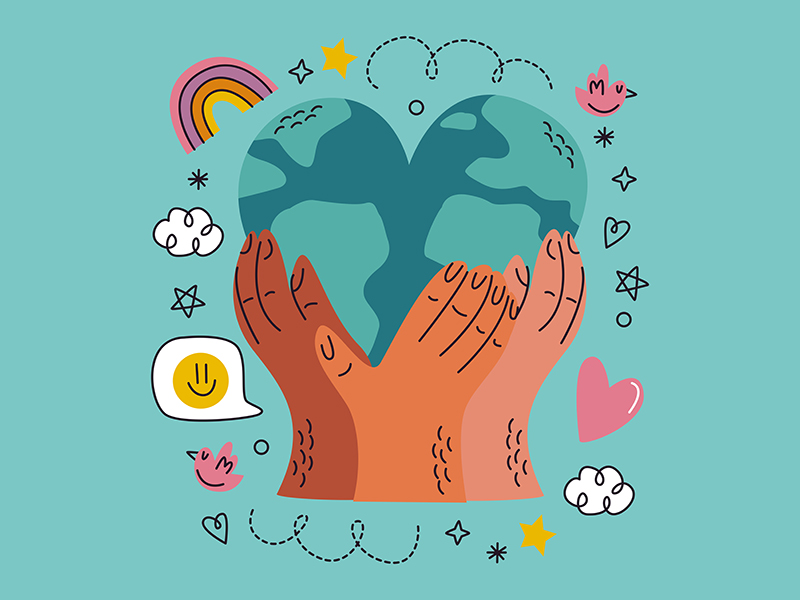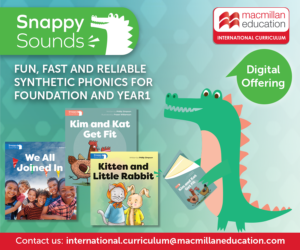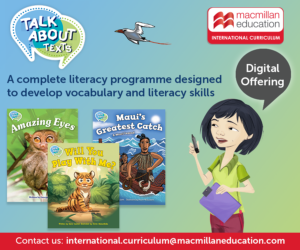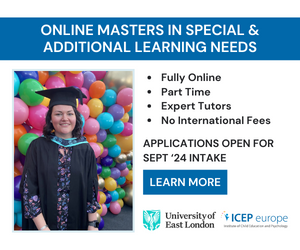By Lauren Kelley
In light of World Kindness Day, Lauren Kelley, Diversity, Equity, Inclusion and Belonging Coordinator, ACS International Schools, discusses the pivotal role that kindness plays in ACS’ organisational values and what kindness looks like in an educational setting.
At ACS International Schools, ‘act with kindness’ is one of our five core values, and we lean into it daily. To do this effectively, we have taken a hard look at what it means to be truly kind so that we can authentically foster kindness in our community. By viewing kindness through a diversity, equity, inclusion and belonging (DEIB lens, we approach it as not only being kind to others – by celebrating diversity and being inclusive – but equally by being kind to ourselves and nurturing self-acceptance, self-love and self-worth. Certainly, these qualities impact resilience and how we see ourselves in the world, which can lead to the confidence needed to take on challenges and problem-solve in new ways.
This year, we added ‘belonging’ to ‘diversity, equity and inclusion’. In listening to our communities, we recognised that we could improve on the opportunities we create to develop a sense of belonging for all. To foster a sense of belonging, we believe people need to feel seen, feel heard and build trust. This has led to a focus on identity education, explicit invitations for community members to share their experiences and provide feedback and the development of a range of both curricular and extracurricular programmes. Above all, we have learned to truly listen to our community.
We believe that being truly kind to ourselves, to each other and to our communities also means encouraging continuous growth and reflection, as opposed to a more traditional understanding of kindness, whereas maintaining the status quo may be the default. We have initiatives in place to support our staff in having courageous conversations with each other to support continuous growth. Teachers and school leaders model and encourage growth mindsets, viewing mistakes not as troublesome, but as lessons. We aim to be progressive and to inspire the next generation of thinkers and doers, and so, the importance of courage, creativity and resilience is paramount.
Our pedagogy and curriculum have been specifically designed to give a 360-degree view of the child. In doing so, we learn to understand ourselves and others in order to develop identity awareness, self-worth, passion and resilience. Not only do we intentionally build individual relationships with our students, but we place significant focus on the International Baccalaureate (IB) learner profile and ‘approaches to learning’ to ensure that our students can leave school feeling that they are valued and that they can add value in the world.
We follow a play-based learning approach in our lower school, which develops confidence and belonging. By providing choice to our youngest students and allowing them time to discover their passions and their identities, students learn that their ideas have value, and therefore that they themselves are valuable. In our upper grades, through service learning, our students are encouraged, challenged and supported to make a positive difference in society in a way that aligns with their values. Additionally, in order to increase community and belonging, we recently restructured our advisory programmes so that classes are smaller and meet daily. We employed a full-time PSHE teacher to cover the curriculum to create more space in advisories for students and teachers to share and connect.
“Above all, we have learned to truly listen to our community.”
For other international schools looking to ensure kindness is embedded into their organisational values, there needs to be an explicit commitment to people – this could be something as simple as a head of school saying how important getting to know people really is – and should be looked at through three lenses:
- Kindness to ourselvesThis is knowing and celebrating ourselves through identity development to ensure that people don’t feel like there are parts of themselves that they need to hide. This leads to self-worth, wellbeing, productivity and resilience to rise above challenges.
- Kindness towards othersSchools should intentionally know and celebrate others. This can be done through encouragement from the school’s leadership team, teaching an identity-focused curriculum, having an explicit focus on culture, asking people for feedback and genuinely listening and putting action into that feedback and providing clear pathways for all communities to share ideas. We have also found that inclusive planning and shared decision-making has helped us to enhance kindness towards others.
- Growing through kindnessSchool leaders need to look beyond maintaining the status quo, and this means that a focus on courageous conversations is required for growth. And, in order to promote these growth mindsets, we must all model vulnerability, so there must be trust amongst your staff teams to do this.
As an organisation, ‘act with kindness’ is a core value that has served us very well; leaning into it has empowered our DEIB efforts, promoted continuous learning for all our community and developed our resilience. It has shone a light on where we need to focus our efforts and has helped us build community and trust. Above all, it has prepared us all to take on challenges in the world creatively and resiliently, and to ensure that we feel confident and able to make the difference the world needs.

Lauren is the Diversity, Equity, Inclusion and Belonging Coordinator at ACS International Schools. You can connect with her on LinkedIn.






